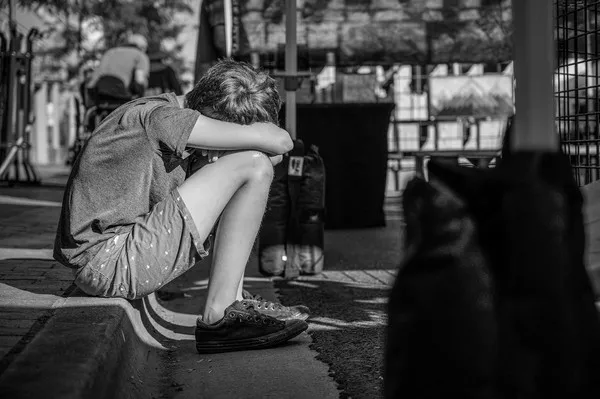Psychiatric rehabilitation (also known as psychosocial rehabilitation) is a specialized approach designed to support individuals living with mental illnesses, helping them rebuild their lives, achieve personal goals, and integrate back into society. The aim of psychiatric rehabilitation is to improve a person’s functional abilities, promote independence, and provide them with the necessary tools to manage their condition. In this article, we will delve into what psychiatric rehabilitation entails, the process, its importance, and the methods used in this field.
Psychiatric Rehabilitation
Psychiatric rehabilitation is a holistic, person-centered approach that goes beyond treating the symptoms of mental illness. It focuses on enabling individuals to develop the skills they need to live a fulfilling and meaningful life. Rather than just addressing the clinical aspects of a mental health disorder, psychiatric rehabilitation encompasses social, vocational, and recreational aspects that allow individuals to function more effectively in society.
The goal of psychiatric rehabilitation is to help individuals with psychiatric conditions achieve their maximum potential in terms of independence, community involvement, and overall well-being. This process is individualized, recognizing that each person has unique needs, preferences, and challenges. It is collaborative, involving a range of professionals and support systems that work together with the individual to create a comprehensive rehabilitation plan.
Key Objectives of Psychiatric Rehabilitation
The core objectives of psychiatric rehabilitation can be broken down into several key components:
Enhancing Functional Capacity: The primary goal of psychiatric rehabilitation is to improve the functional capacity of individuals. This includes skills related to daily living, such as managing finances, handling personal hygiene, and taking care of household responsibilities. The aim is to increase the individual’s ability to function independently.
Increasing Social Integration: Many individuals with psychiatric disorders face social isolation, which can exacerbate feelings of loneliness and contribute to a decline in mental health. Psychiatric rehabilitation helps individuals develop social skills, engage in meaningful relationships, and participate in social activities within their community.
Promoting Vocational Rehabilitation: One of the critical aspects of psychiatric rehabilitation is vocational training. Many individuals with psychiatric conditions face challenges in securing and maintaining employment. Psychiatric rehabilitation programs often provide job training, skill development, and job placement services to help individuals return to work or pursue meaningful career opportunities.
Fostering Independence: One of the most important goals of psychiatric rehabilitation is to promote autonomy and self-reliance. Individuals are encouraged to make decisions about their lives, set goals, and work toward achieving them with the support of mental health professionals.
Improving Quality of Life: Psychiatric rehabilitation places a strong emphasis on improving the overall quality of life for individuals. This includes not just managing the symptoms of the disorder but also addressing broader factors such as physical health, emotional well-being, and the ability to participate fully in life.
The Role of Mental Health Professionals in Psychiatric Rehabilitation
Psychiatric rehabilitation is an interdisciplinary process involving various mental health professionals who collaborate to provide comprehensive care and support. These professionals may include:
Psychiatrists: Doctors who diagnose and treat mental health disorders and prescribe medication.
Psychologists: Professionals who assess mental health, provide therapy, and offer support to help individuals cope with their conditions.
Social Workers: Social workers are integral to providing support services, such as connecting individuals to community resources and helping them navigate social and vocational rehabilitation programs.
Rehabilitation Counselors: These professionals work directly with individuals to assess their needs and help them develop strategies to overcome obstacles related to mental illness.
Nurses and Psychiatric Technicians: Nurses and technicians play an essential role in providing hands-on support, administering medications, and assisting with daily living activities.
Peer Support Specialists: Individuals who have lived experience with mental health conditions provide support and encouragement based on their own recovery journey.
The Psychiatric Rehabilitation Process
The process of psychiatric rehabilitation typically follows several stages. Each stage is designed to address specific aspects of an individual’s recovery and rehabilitation journey. The stages include:
1. Assessment and Evaluation
Before rehabilitation begins, a thorough assessment of the individual’s mental health, functional capabilities, and personal goals is conducted. This evaluation may include medical assessments, psychological evaluations, and a review of the individual’s history and experiences with mental illness. The goal is to understand the unique challenges the person faces and to identify areas where support and intervention are needed.
2. Goal Setting
Once the assessment is complete, the individual, along with their rehabilitation team, works to set personal goals. These goals are specific, measurable, achievable, relevant, and time-bound (SMART goals). The goals may range from improving social skills, managing symptoms, or securing employment, to developing a routine for daily activities. The key here is that the goals are tailored to the individual’s needs and aspirations.
3. Intervention and Support
The rehabilitation plan is implemented through various interventions and support services. This may include one-on-one therapy, group therapy, social skills training, vocational counseling, medication management, and community-based support services. The rehabilitation process is often gradual, with individuals receiving the support they need to achieve incremental progress toward their goals.
4. Skill Building
A significant part of psychiatric rehabilitation involves helping individuals develop practical skills that can be applied in their everyday lives. This includes skills like time management, problem-solving, communication, and coping strategies for managing stress or challenging emotions. It also includes teaching individuals how to manage symptoms of mental illness in a way that allows them to live independently and productively.
5. Community Integration
A critical aspect of psychiatric rehabilitation is encouraging individuals to reintegrate into their communities. This may involve participating in social activities, joining support groups, volunteering, or seeking employment. Community integration helps reduce the stigma associated with mental illness and promotes social inclusion, which can improve the overall well-being of individuals.
6. Monitoring and Adjustment
The rehabilitation process is ongoing, and the individual’s progress is regularly monitored. If necessary, the rehabilitation plan is adjusted to ensure that it remains relevant and effective. This may involve refining goals, changing strategies, or providing additional support as the individual’s needs evolve.
Methods Used in Psychiatric Rehabilitation
Psychiatric rehabilitation incorporates various therapeutic and practical methods to help individuals recover and reintegrate into society. Some of the key methods used include:
Cognitive Behavioral Therapy (CBT): CBT is one of the most commonly used therapeutic techniques in psychiatric rehabilitation. It focuses on helping individuals identify and change negative thought patterns and behaviors that contribute to their mental illness. By changing how they think and behave, individuals can learn to cope better with their symptoms.
Social Skills Training: Many individuals with mental illness struggle with social interactions and communication. Social skills training helps individuals develop the skills needed to interact with others effectively, build relationships, and navigate social situations.
Occupational Therapy: Occupational therapists work with individuals to help them develop the skills necessary to perform daily tasks. This can include everything from personal care to vocational training, and the goal is to enhance the individual’s ability to live independently.
Supported Employment Programs: These programs help individuals with mental illness secure and maintain employment. Supported employment typically includes job coaching, on-the-job training, and support with workplace challenges.
Family Support and Education: Family involvement is often an essential component of psychiatric rehabilitation. Families are provided with education and support to help them understand mental illness and how they can best support their loved one in their rehabilitation journey.
The Importance of Psychiatric Rehabilitation
Psychiatric rehabilitation is an essential part of mental health care because it addresses the functional, social, and emotional needs of individuals living with mental illness. Some of the reasons why psychiatric rehabilitation is so important include:
Improved Quality of Life: By focusing on improving functional abilities, social relationships, and emotional well-being, psychiatric rehabilitation enhances the overall quality of life for individuals.
Reduced Stigma: Rehabilitation helps individuals reintegrate into society, reducing the stigma often associated with mental illness. This encourages acceptance and understanding from others.
Empowerment: Psychiatric rehabilitation empowers individuals to take control of their lives, make decisions, and pursue goals that are meaningful to them.
Long-Term Recovery: Psychiatric rehabilitation focuses on long-term recovery and relapse prevention. It provides individuals with the tools and strategies needed to manage their condition and reduce the likelihood of future episodes.
Conclusion
Psychiatric rehabilitation is an integral part of mental health care, offering individuals with psychiatric disorders the support they need to regain independence, achieve personal goals, and integrate back into society. It is a comprehensive, individualized process that addresses the full range of needs—functional, emotional, social, and vocational—of those living with mental illness. By promoting recovery, enhancing quality of life, and reducing stigma, psychiatric rehabilitation plays a vital role in helping individuals lead fulfilling and meaningful lives.
Through a combination of therapy, skills training, community support, and personalized interventions, psychiatric rehabilitation provides individuals with the tools they need to thrive in society and manage their mental health effectively. It is an essential service for anyone struggling with mental illness, offering hope and empowerment on the path to recovery.
Related Topics
































